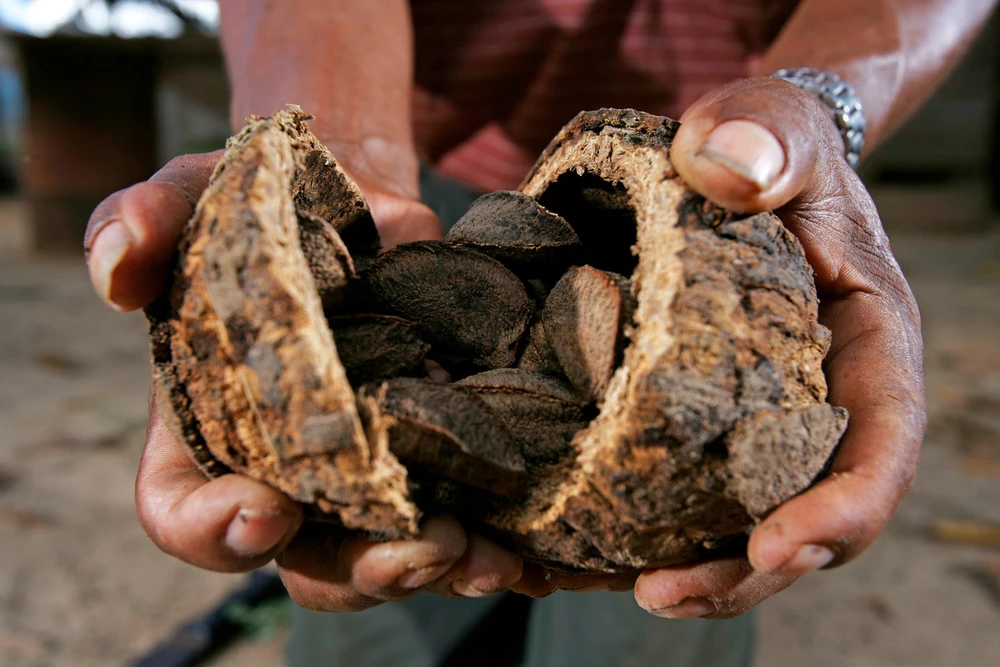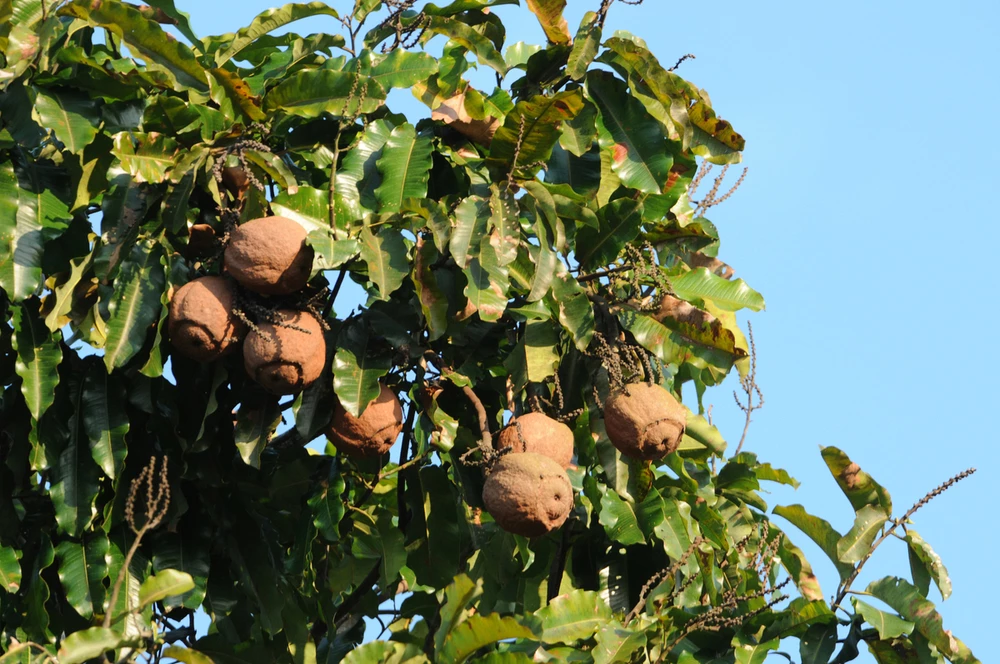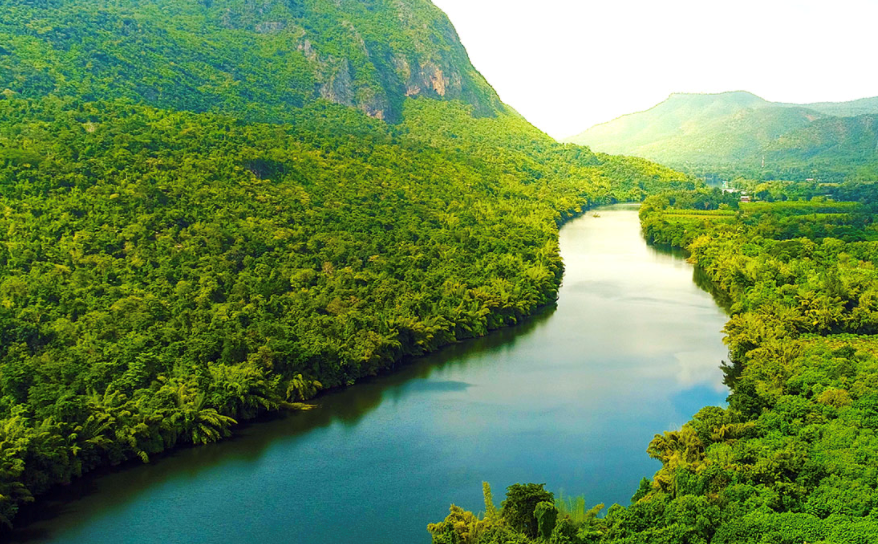DFCD supports Brazil nut production in Amazon region
The Dutch Fund for Climate and Development (DFCD) has approved grant support for Amazonas SA, a leading Bolivian company pioneering the processing of Brazil nuts harvested by local communities in the Amazon forest.
Amazonas SA in Bolivia and its sister company in Peru, Manutata SAC, account for 15% of the global Brazil nut market. The sister companies are regarded as pioneers in working with local communities to source Brazil nuts.
The project with Amazonas SA has been put forward by the World Wide Fund for Nature Netherlands (WWF-NL) which together with SNV Netherlands Development Organization manages the DFCD’s Origination Facility to develop new projects for the climate investment fund. With the approval of the grant, WWF has the intention to sign a €205,000 grant funding agreement with Amazonas SA.
Key local crop
Brazil nuts, also known as Amazon nuts, are harvested in the Amazon forest. Supporting the Brazil nut value chain is essential for forest conservation. Their trees are massive and often rise above the rainforest’s canopy. Attempts to cultivate the tree outside the forest have failed because it needs the extensive and complex ecosystem of the Amazon to thrive and produce nuts. Once ripe, the nuts fall to the forest floor, waiting to be collected by harvesters.
In the Amazon region, which relies on agriculture, the production of the Brazil nut is the most important value chain. In Bolivia around 14,000 people work in the entire Brazil nut sector.

© Brent Stirton / Getty Images / WWF
Increasing the value of Brazil nuts for local communities
Amazonas buys their nuts from local communities who gather as many nuts as possible in the harvesting season between December and March. By paying a fair wage to local communities, they are guaranteed a stable source of income. Realising the trees’ value will help protect the forest against deforestation for agriculture or cattle ranching. Considering the area where the company sources the raw material, the area of influence in Bolivia is estimated at 100,000 to 150,000 hectares, an area about the size of London.
Apart from a fair wage, Amazonas pioneers in various aspects, including improving the quality standards of the product and equal opportunities. At the processing level for example, its factory is regarded as a leader in quality and labour standards: Amazonas is the first to develop the HACCP certification for Brazil nuts, an international standard defining the requirements for effective control of food safety.
Additionally, Amazonas SA holds certifications related to organic and fairtrade production: around 25% of its production is organically certified, and 6% is fair trade certified, providing a premium that goes directly to communities, improving the quality standards of the product, promoting equal opportunities like closing any potential gender wage gap.
Strengthening environmental and social standards
The purpose of the grant support is to further strengthen its environmental and social practices. Amazonas SA will carry out a stakeholder mapping and consultation process, which will serve as an input for consolidating the design of policies related to human rights, child labour, and gender. The environmental component will be further developed by assessing the feasibility of installing a biomass facility to generate electricity. With the aim of reinforcing its sustainability strategy, the company will also carry out carbon footprint measurements at the field and processing plant levels to understand its climate change impact.
The company will also use part of the grant to build a biodiversity baseline study and monitoring plan in the Manuripi Amazon Wildlife Reserve in Bolivia. This will allow the company to see whether the nuts and their trees are being affected by human intervention and, if so, how Amazonas SA can minimise this disruption.
To achieve this, it is seeking an investment of around €10 million for working capital, which it hopes to receive through a loan from the DFCD.

© WWF-Brazil / Zig Koch
Key impact metrics
- Direct employment of 704 quality jobs
- Protecting indirectly 150.000 hectares of forest where Brazil nuts are harvested.
Fabricio de Campos, Regional Lead WWF DFCD Latin America:
"The Brazil nut value chain has been fundamental in the conservation of the rainforest in the Southwest Amazon ecoregion in Bolivia. Its significant contribution to local livelihoods has effectively helped to keep the threats posed by intensive agriculture and cattle ranching at bay. The project seeks to raise the bar in environmental and social practices of a leader in the sector such as Amazonas SA, seeking to consolidate a development model that is expected to spread to other actors in the chain and possibly to other non-timber forest products."
Jordi Surkin, Conservation Director WWF Bolivia:
"The southwest Amazon landscape in Bolivia has the potential to become an example of sustainable economic development that benefits people and nature. The Amazonas S.A.-DCFD project can make an important contribution to this goal."
Marcelo Paz, General Manager Amazonas S.A.:
"The environmental, social and economic sustainability practiced by Amazonas S.A. will be greatly strengthened by the technical assistance that WWF will give us with funds from the DFCD. These resources will allow a better positioning of the Amazon Brazil nut in Europe, will help us to continue systematically with the engagement of local actors, will make us measure our carbon footprint both at field and industrial level, will enable our efforts to be self-sufficient by generating energy from biomass, and will allow us to monitor wildlife in areas of influence. This type of collaboration is possible thanks to a conservation model through use that is unique in the world."
About Amazonas SA:
Amazonas S.A. has more than three decades of experience in the collection, processing, and export of Brazil nuts to countries in Europe, the United States, and other countries. The company has been in the Brazil nut business for more than 32 years and already have an established market for its products around the world, being one of the leading exporting companies in both Bolivia and Peru.
Contact
For more information, Fabricio de Campos, Regional Lead WWF DFCD Latin America at fabriciocampos@wwf.org.br.
In case you have any grievances in relation to this project of the DFCD’s Origination Facility, please contact us through our service desk at servicedesk@wwf.nl.
About DFCD
The Dutch Fund for Climate and Development (DFCD) is a climate fund, dedicated to supporting climate adaptation and mitigation projects which benefit vulnerable communities and landscapes. Initially funded by the Dutch government, it is powered by a consortium of four expert organisations: FMO (Dutch Entrepreneurial Development Bank), CFM (Climate Fund Managers), SNV, a global development partner, and WWF Netherlands.

